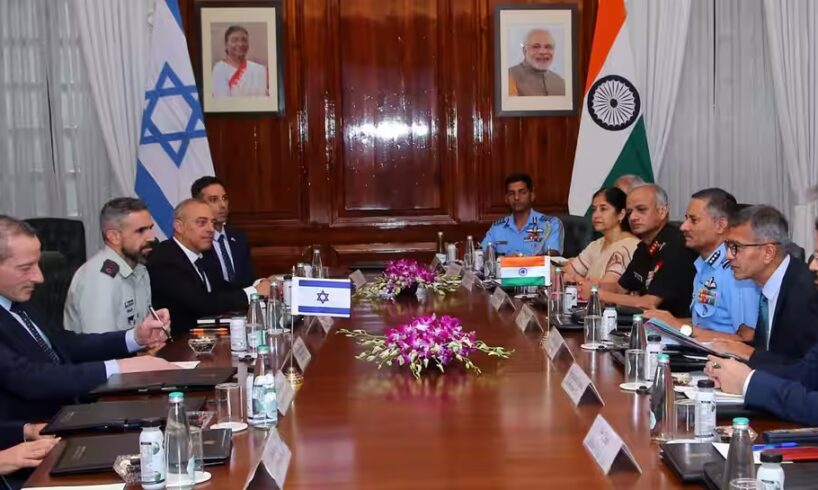
India is pushing its border security and military modernisation into a new phase driven by science, technology, and co-development. In this context, the 17th India–Israel Joint Working Group (JWG) meeting held in Tel Aviv in November 2025 saw both sides prioritising cooperation in AI-based surveillance, smart border management, counter-drone systems, cybersecurity, and defence production. But the cooperation is not a one-way flow of technology from Israel India is shaping this partnership around its long-term strategic requirements, self-reliance goals and broader modernisation agenda.
With over 15,000 km of highly diverse international borders — spanning mountains, deserts, forests and riverine terrain — India cannot rely solely on human patrols. According to the Manohar Parrikar Institute for Defence Studies and Analyses, some of the most challenging stretches had only about 60 km covered by advanced technology as of 2019. This gap is driving India’s push to deploy modern systems such as the Comprehensive Integrated Border Management System (CIBMS). The pilot phase covered 71 km, and the next stages aim to extend electronic surveillance to nearly 1,955 km of difficult-to-monitor areas with sensors, cameras, thermal imagers and UAV networks.
During the Tel Aviv meeting, the Indian delegation emphasised that the future of border security must be “data-driven” and “human-enhanced” — meaning machines generate alerts, but decision-making and action remain in human hands. Israeli experience in integrated surveillance is valuable, but India’s focus is co-developing systems tailored to its environment rather than importing off-the-shelf solutions. This is why joint R&D, AI model training, cybersecurity protocols, and long-term technology-transfer frameworks for Indian industry were central discussion points in the JWG.
Add Zee News as a Preferred Source
Adding perspective, Saurabh Jha, CEO, Drone Anatomy, noted, “Cross-border drone activity is becoming faster, lower and more unpredictable. AI-led detection and response systems are no longer optional — they’re essential. India’s push for co-developed counter-UAV tech ensures solutions that actually fit our terrain and threat patterns.”
Both countries also share similar concerns about drone threats. India has witnessed drone-drops and weaponised UAV activity across Punjab, Jammu and Rajasthan, while Israel has faced sophisticated swarm and low-altitude drone attacks. As a result, AI-enabled counter-UAV systems, RF jammers and joint data-sharing for early detection were treated as high-priority areas in the JWG — cooperation driven by India’s needs, not dependence.
A major portion of the India–Israel relationship now revolves around co-development and co-production. Joint programmes such as the Barak-8 missile system demonstrate how both sides can build capabilities together. The Adani–Elbit UAV manufacturing facility, producing Hermes-class drones in India, shows how such collaboration can also strengthen domestic manufacturing and export potential. India’s objective is clear: reduce imports, expand indigenous production and build a resilient defence ecosystem.
In essence, the current phase of India–Israel defence cooperation is not about giving an edge to any one partner. It is a model shaped around India’s strategic requirements, technological independence and the evolving nature of modern warfare. The Tel Aviv JWG meeting has given this balanced, technology-driven, India-priority approach a clearer and more structured momentum.





